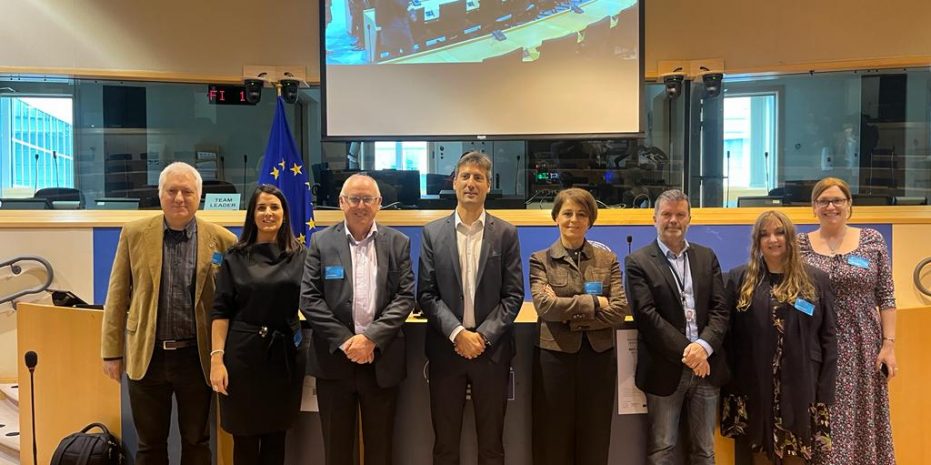ADAPT Experts in Language Technology Appeal to European Parliament for Language Equality

What is the EU doing to protect languages digitally? This was one of the questions posed this week during an event that saw the European Language Equality (ELE) project present its findings at the European Parliament. Coordinated by Professor Andy Way, Deputy Director of ADAPT and Professor of Computer Science at DCU, the first phase of ELE had 52 partners covering all European countries with the aim of developing a strategic agenda and roadmap for full digital language equality in Europe by 2030.
The majority of European languages are in danger of digital extinction due to a severe lack of technological or infrastructural support. For the past decade, the introduction of neural technologies has precipitated a revolution in digital language services, allowing for ever faster and more accurate automatic speech recognition (ASR) and machine translation (MT) results. Nonetheless, a stark imbalance persists in technology support between the five most spoken EU languages (English, French, German, Spanish and Italian), and the remaining 19 official ones.
This digital inequality increases still further when regional and minority languages are considered, leading to a dearth of online technological support for both written (text) input as well as for multimodal (audio, video) content. As digital services become a more integral part of our lives, such digital language inequalities could eventually threaten the digital survival of EU languages.
Opening the event, MEP Jordi Solé, said: “Each language, regardless of the number of speakers and its official status, is a treasure that has been created and polished over generations. And while it is true that the means and ambition must be put in place to promote and preserve all languages, it is also true that those that are in a situation of greater weakness must be the object of special attention. That is why we must welcome initiatives like the European Language Equality (ELE) project, which analyzed over 80 languages to develop a roadmap towards achieving full digital language equality by 2030”.
Experts presented and analysed technology support for Irish, Bulgarian, and Basque along with recommendations towards full digital language equality in the EU by 2030.
Speaking at the event, Professor Andy Way said: “The EU flags the importance of digital language services being available in all languages to ensure full access to digital services for all. Jill Evans’ 2018 report endorses language equality in the digital age. In the 21st century, language cannot be a barrier to access to information. Language technology is the only feasible way to overcome linguistic barriers while preserving our cultural diversity and language rights which we all hold dear. What we have done in the ELE project is to provide firm empirical evidence of the state of digital readiness of 92 European languages. Unfortunately, the current state of affairs isn’t great, but European support for the ELE research programme – a large-scale, long-term coordinated funding programme for research, development and innovation in the field of language technologies, at European, national and regional levels, tailored specifically to Europe’s needs and demands – will rectify the situation and ensure that all European languages can thrive in the digital age.”
Commenting on the ELE project, June Lowery-Kingston, Head of the Accessibility, Multilingualism and Safer Internet unit at the European Commission, said: “We now have a real possibility to work together on digital language equality, such as through the EU data space. The main lesson we learned from the ELE project is that data is the source of everything.” There are huge amounts of language data, but they are currently publicly available; if European language technology experts could access these datasets, then digital language equality for all European languages could be assured.The event was arranged by the European Parliament Panel for the Future of Science and Technology (STOA). It included a panel discussion featuring a range of language technology researchers and academics, MEPs and European Commission representatives who focused on how Digital Language Equality can ultimately benefit European citizens. This event was the third in a series of events on language technologies in the EU (the first, in 2013 and the second in 2017). It builds on a STOA study on “Language equality in the digital age”, which led to the European Parliament’s Resolution of the same name.







